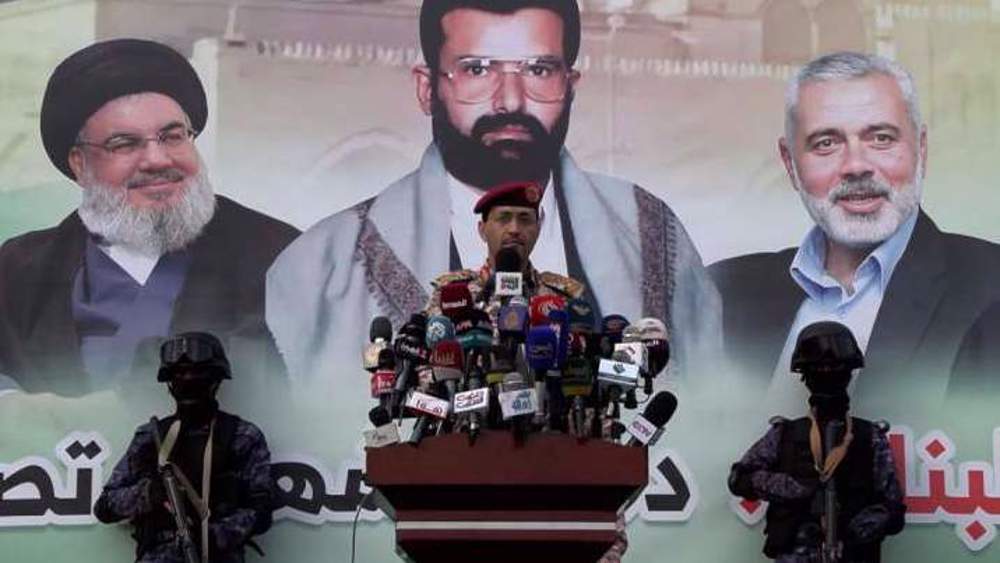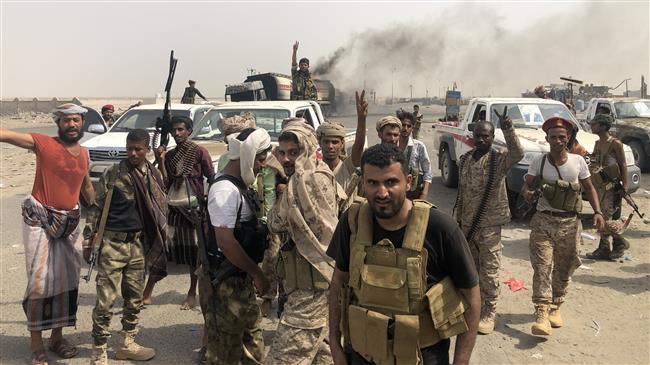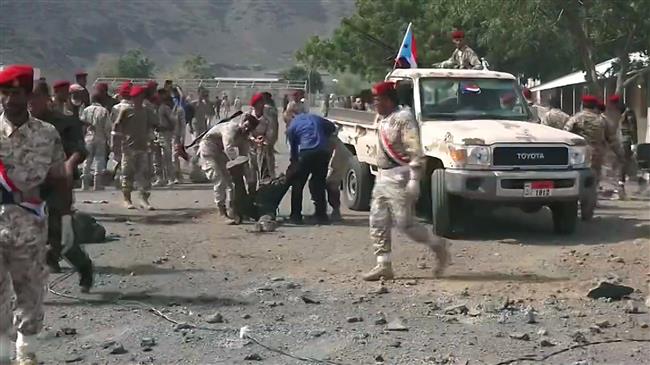UAE-backed separatists arrest scores of pro-Saudi forces in Aden
Southern Yemeni separatists, who are supported by the United Arab Emirates, say they have arrested dozens of rival Saudi-backed militants in Aden after they withdrew from the port city following airstrikes by the UAE.
UAE warplanes on Thursday pounded the positions of militants loyal to ex-Yemeni president, Abd Rabbuh Mansur Hadi, in Alam area at the eastern entrance to Aden, exposing a deep rift between the two camps leading a coalition in a bloody war on Yemen.
The airstrikes came hours after Emirati-backed southern separatists regained control of Aden, forcing Saudi-sponsored militants, who had entered the port city a day earlier, to withdraw.
According to reports, more than 300 pro-Hadi troops were killed or wounded by the UAE airstrikes on Aden and nearby Abyan province.
After Saudi-backed militants pulled out of Aden, forces of the separatist Southern Transitional Council (STC) raided homes and businesses and arrested "scores" of pro-Hadi activists, politicians and clerics, accusing them of "terrorism," STC officials and witnesses said.
Arrests continued on Saturday, as separatist forces patrolled Aden's streets surrounded by an uneasy calm, residents told Reuters.
The self-proclaimed Hadi administration said the arrests were "politically-motivated."
An STC source denied this, saying dozens of "terrorists and outlaws" had been rounded up.
Both the UAE-sponsored separatists and the Saudi-backed pro-Hadi militants serve the Riyadh-led coalition and have been engaged, since 2015, in a bloody war on Yemen aimed at reinstating Hadi and crushing the popular Ansarullah movement.
Ties between the two sides have soured over a number of issues, including what the Yemenis view as Abu Dhabi’s intention to occupy Yemen’s strategic Socotra Island and gain dominance over the major waterways in the region.
Last month, the UAE announced a surprise plan to withdraw part of its troops from Yemen, largely because Abu Dhabi believes the war appears to have become “unwinnable,” according to US reports.
The Western-backed war on Yemen, coupled with a naval blockade, has killed tens of thousands of Yemenis, destroyed the country’s infrastructure, and led to a massive humanitarian crisis.
The US-based Armed Conflict Location and Event Data Project (ACLED), a nonprofit conflict-research organization, estimates that the war has claimed more than 91,000 over the past four and a half years.
VIDEO | Hezbollah rains attack drones down on elite Israeli brigade
Leader: All captains of criminal, Zionist, terrorist gang must be prosecuted
Iran further raises its oil prices for Chinese buyers: Report
Iran to launch major pressure-boosting projects in South Pars
VIDEO | Escalation amid ceasefire talks
EU's Borrell says ICC arrest warrants for Israeli leaders binding
VIDEO | Press TV's News Headlines
VIDEO | Massacre in Pakistan’s Parachinar sparks outrage
















 This makes it easy to access the Press TV website
This makes it easy to access the Press TV website